
Edward Leung faces long spell in jail as lessons learned from Mong Kok riot show Hongkongers ‘only hurt themselves with violent protests’
Two years on from the confrontation and those arrested have been punished with stiff prison sentences. Chinese University political scientist Ivan Choy says the incident has changed the city’s political landscape forever
Locals and tourists alike wander up and down the streets, checking out the latest gizmos and trendiest sports shoes in store. Others jostle for street snacks, everything from fish balls to stinky tofu before heading to the cinemas nearby to catch the latest blockbuster.
Late into the night and the wee hours of the next morning, hundreds of protesters clashed with police in a frenzy of violence, the likes of which the city had not seen in decades.
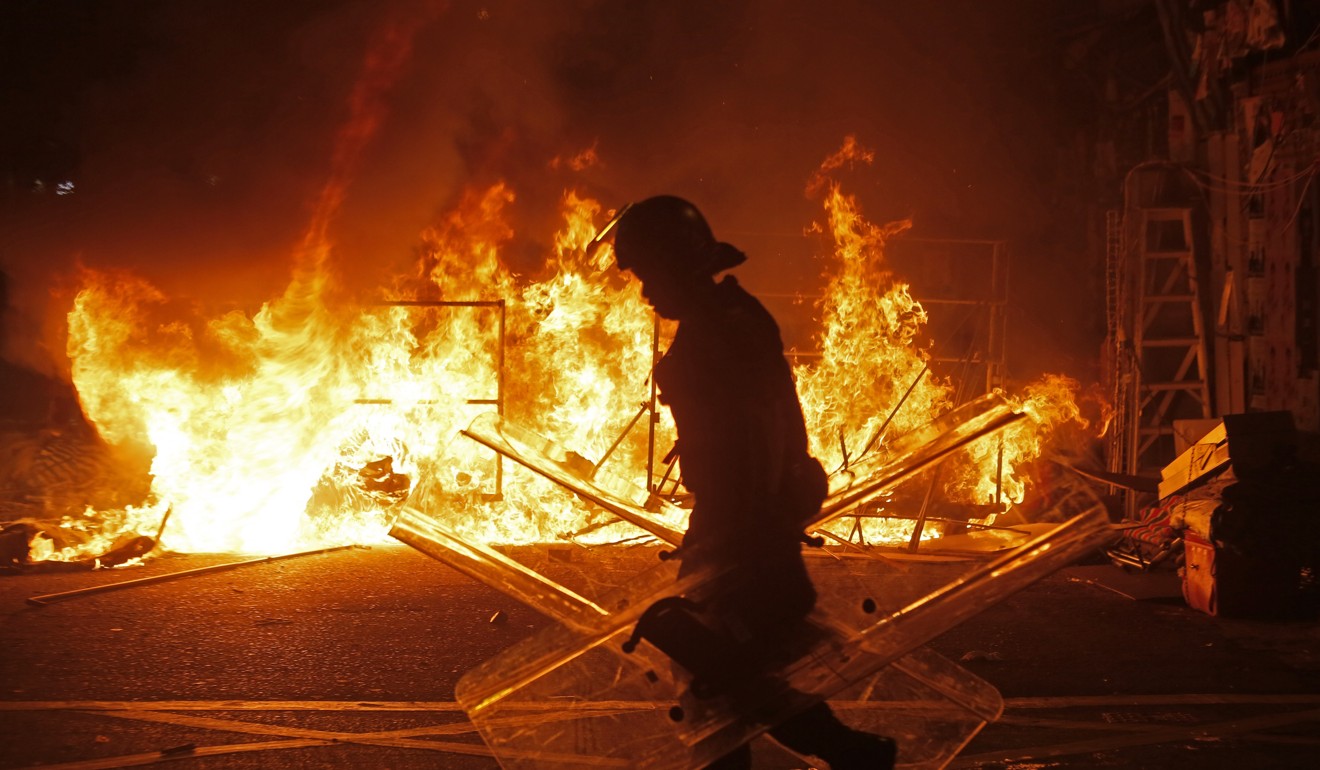
In what Beijing’s then top official in Hong Kong went on to call an act of “terrorism”, bricks were ripped out of pavements and thrown at police, a taxi was lit and overturned, tyre fires were set off and the stench of burning rubber filled the air.
By the time order was restored, a total of 91 people had been arrested. And the city was about to change politically, forever.
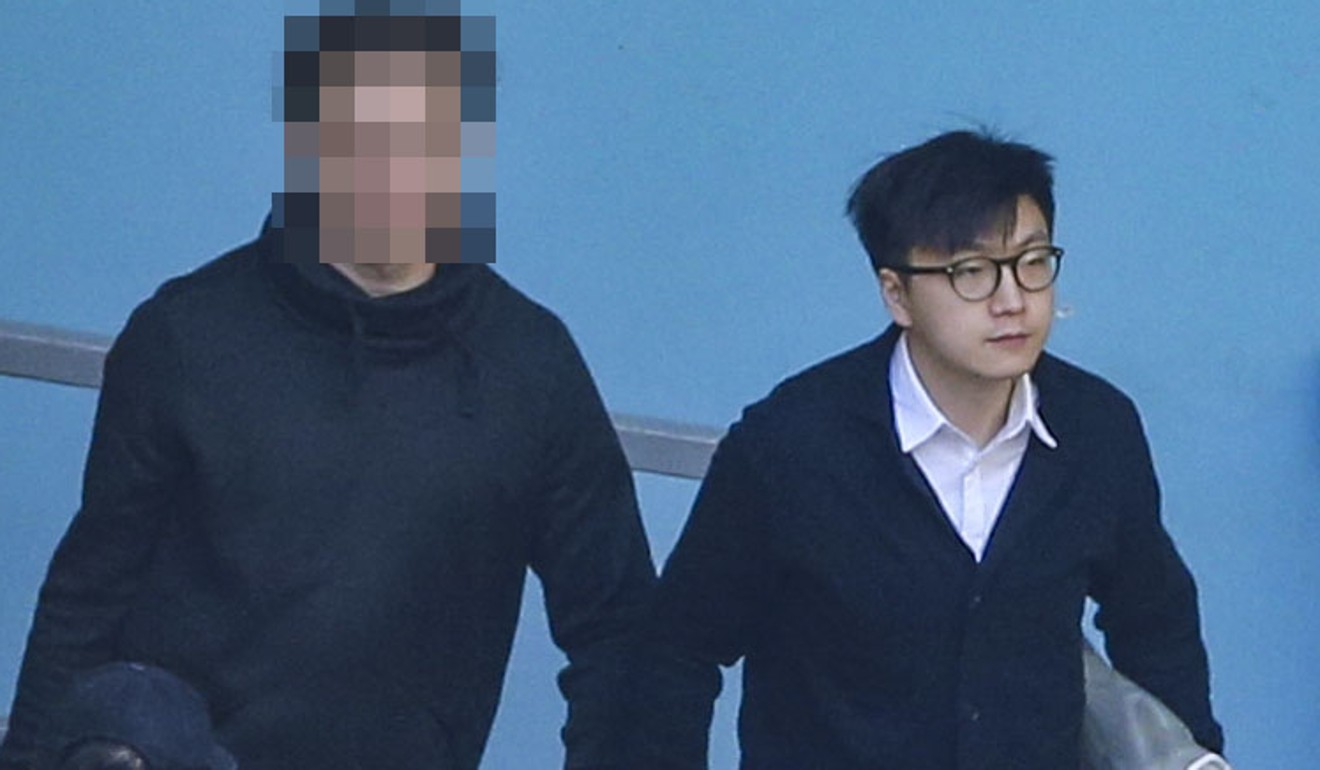
Leung’s co-accused, Lo Kin-man, 31, was also found guilty of rioting, while Lam Lun-hing, 24, was cleared of three counts of rioting.
But the jury was unable to reach a verdict on two other defendants, Lam Ngo-hin, 23, and Lee Nok-man, 21. Lam was acquitted of another charge of unlawful assembly.
Two years on, scholars and political pundits now look back at how the riot set in motion far-reaching changes to the city’s political landscape, and the lives of those at the centre of it.
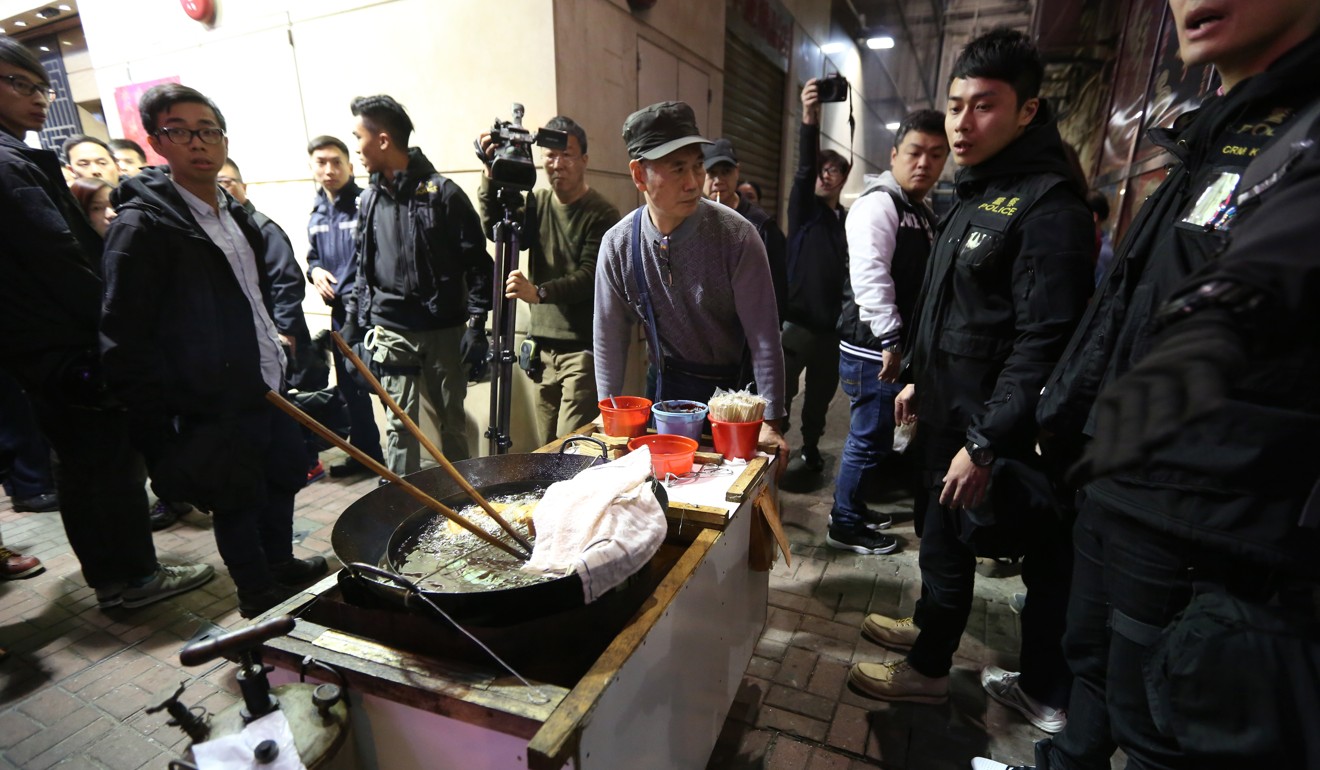
A fight over street food
The “fishball revolution”, as it came to be dubbed, began at about 8pm when a scuffle broke out between FEHD officers and street vendors who were selling the popular snack of fishballs.
According to weeks of evidence heard in court, the row quickly escalated into a full-blown stand-off between protesters and police.
At the front of the angry mob were Leung and his localist comrade Ray Wong Toi-yeung, urging people to stay in defiance of the police.
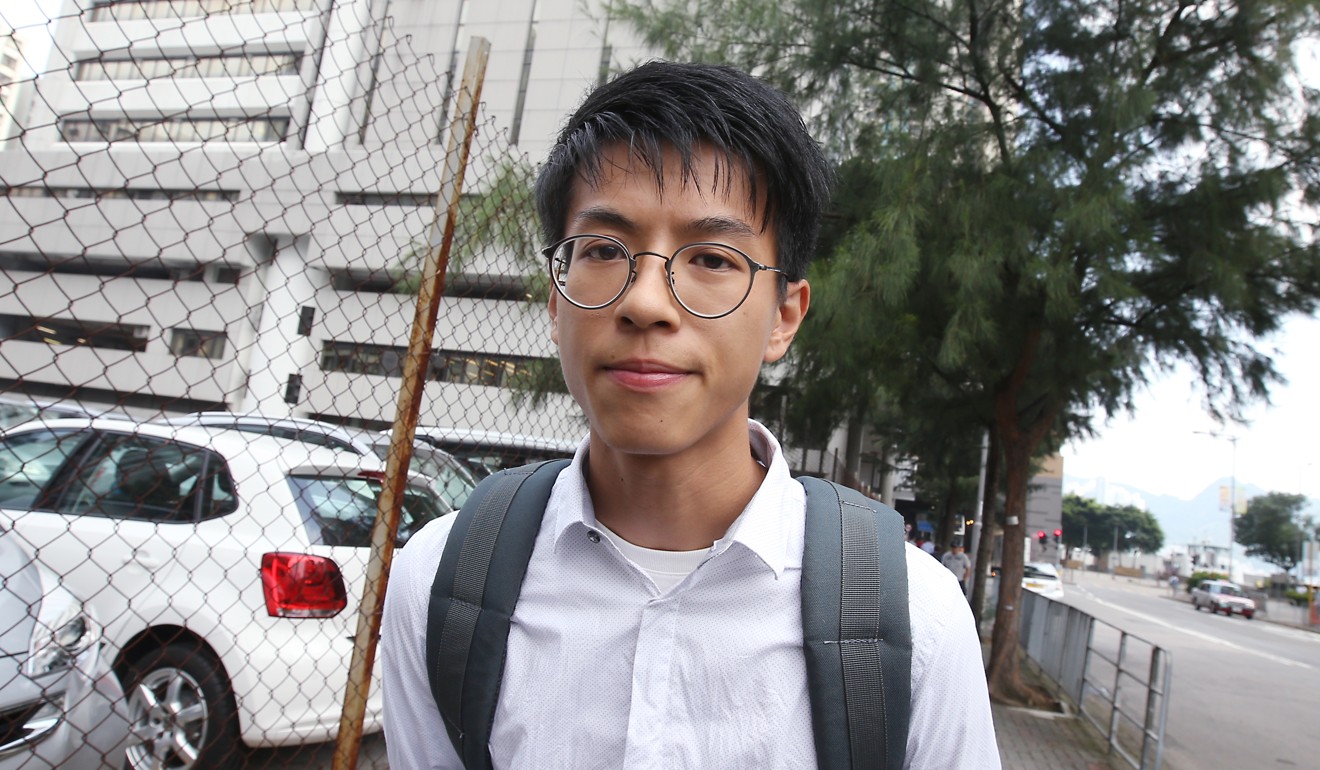
The police merely continued issuing the crowd an ultimatum to disperse.
“If you are a Hongkonger, let’s protect our city and our culture,” Leung told the hundreds at the scene, likening police and hygiene officers to those from “public security” and the “urban management force”, two mainland security departments.
Some adopted a valiant approach, because they no longer believed the peaceful and reasonable way would work
If they were willing to be shooed away by those authorities, they were not Hongkongers, he told them.
At 2am, Wong, who told police Hongkongers would “fool with them till the end”, called for the first major clash of the night.
“Ready? Three, two, one, go!” he said.
The crowd, some wielding long sticks, charged towards police officers and hurled insults. The police officers fended them off with shields and pepper spray.
Chinese University political scientist Ivan Choy Chi-keung said a poor economy was usually the “universal factor” behind a riot.
“Some adopted a valiant approach, because they no longer believed the peaceful and reasonable way would work,” Choy said.
Choy believed protesters thought more forceful action would make Beijing budge, but subsequent events proved otherwise.
Dr Ma Ngok, a colleague of Choy’s, agreed, and said the frustration from 2014 ultimately exploded in Mong Kok that night.
The law of unintended consequences
The riot raged into the night through Argyle and Portland streets and into other corners of Mong Kok. It culminated in protesters and police locked in a stand-off on Soy Street in the early hours of the morning, only separated by a burning rubbish bin.
The unrest prompted Beijing’s foreign ministry days later to indirectly call Hong Kong Indigenous a “ local radical separatist organisation”. Then liaison office chief Zhang Xiaoming, now director of the Hong Kong and Macau Affairs Office, also called those who took part in the riot “thugs” who were “leaning towards terrorism”.
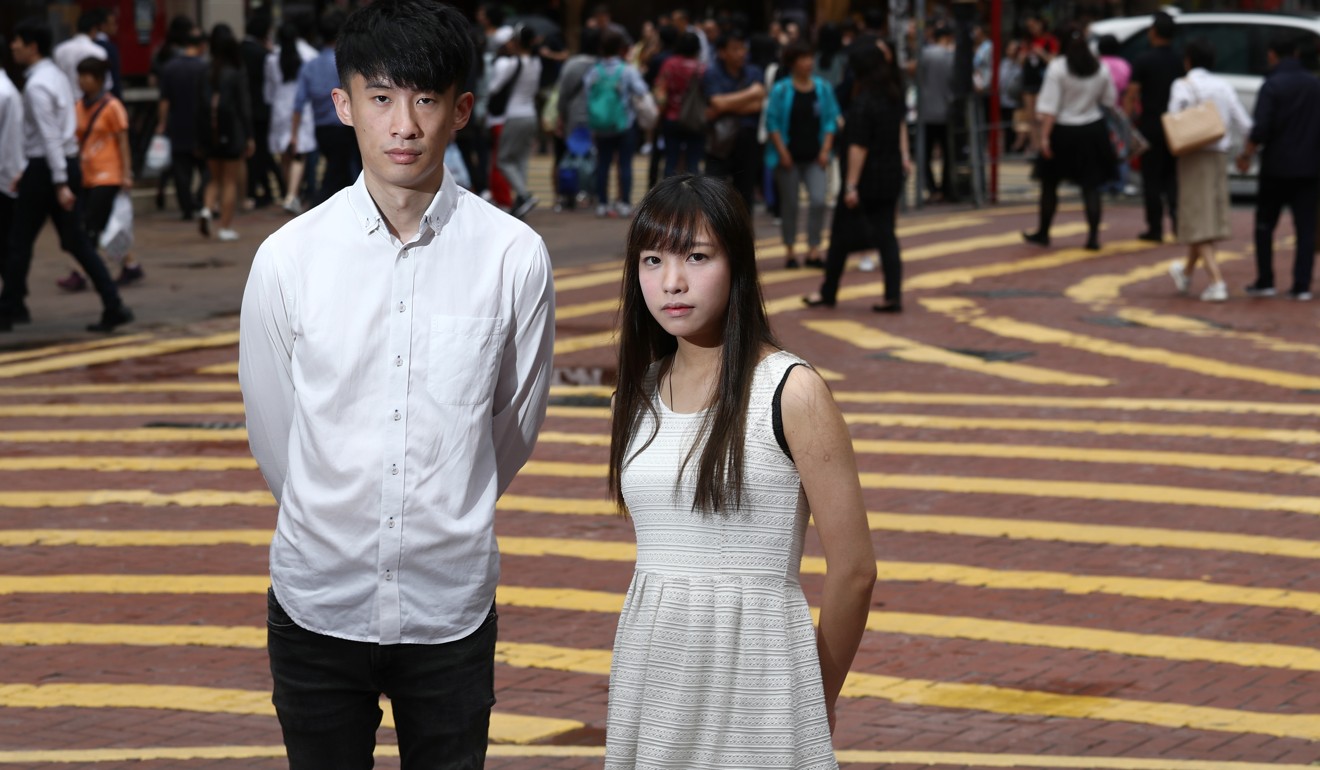
Despite this, the movement was still going strong months later, Choy said. Leung, for instance, raked in 66,524 votes in the by-election on February 28, which was won by Alvin Yeung Ngok-kiu of the Civic Party.
However, supporters began to wake up to the reality of what had happened when Leung’s pro-independence stance led to officials barring him from entering another Legco election later that year.
Ma agreed that this was a turning point.
“After the disqualification of Leung and Yau, all this support for that valiant approach became nothing,” he said.
Ousted lawmakers Baggio Leung and Yau Wai-ching convicted for storming Legco
“The convictions were a huge blow to the participants,” Choy said, adding that Leung’s softening stance did not help. Leung quit Hong Kong Indigenous – formed in January 2016 by mainly post-90s born Hongkongers – ahead of his trial.
The political scientist said people realised that although resisting through peaceful means failed to yield results, forceful action could cause them great harm.
Choy predicted future protests would not be sustained campaigns but would take place in small ways on a day-to-day basis, such as mocking political matters online.
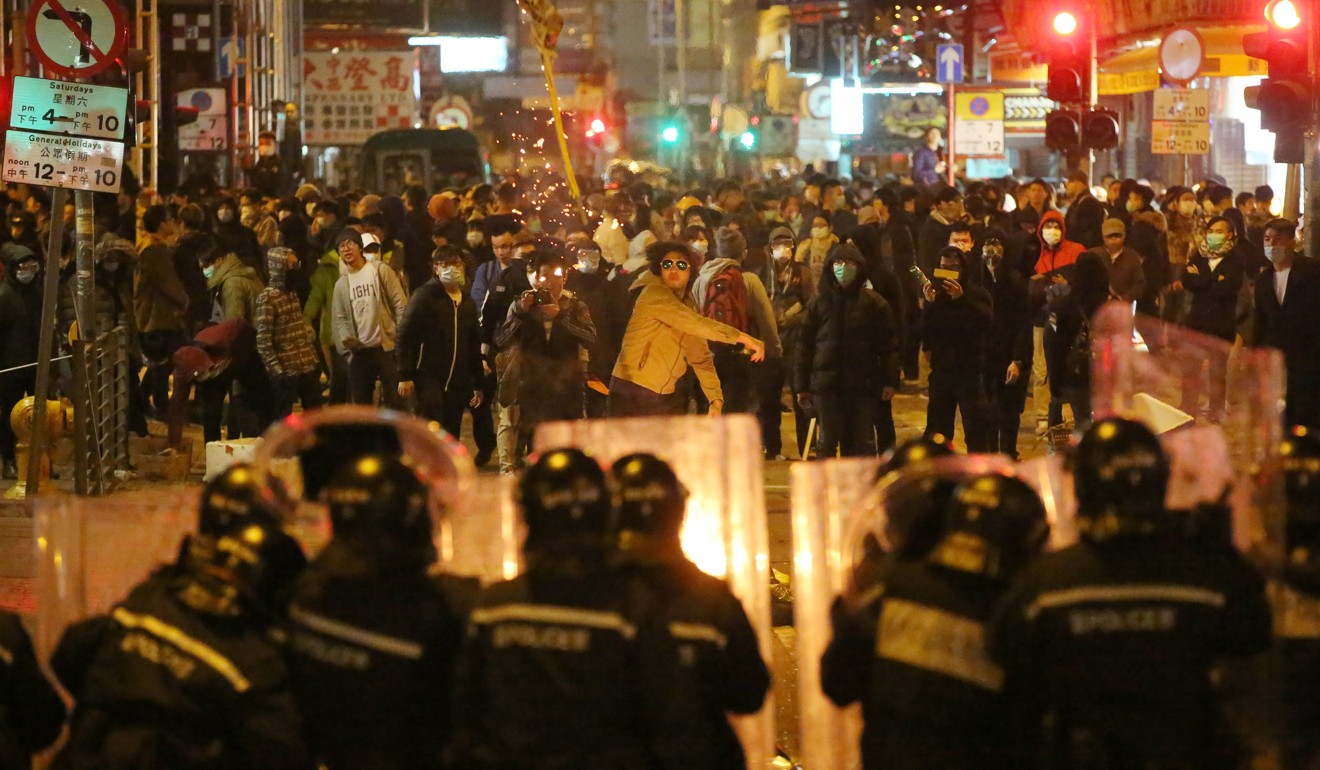
Assistant professor of social policy at Polytechnic University Chung Kim-wah said those who had taken part in protests before now felt a sense of helplessness and were unsure how to continue.
He believed more young people these days were talking about leaving Hong Kong.
“Whether they could do it or not it is another matter, but ... they are talking about it,” he said.
A changed man
But what seems clear is that time has tempered Leung’s political fervour. He was once outspoken about curbing Beijing’s rising influence in the city and critical of anyone who did not share his view.
Nathan Law Kwun-chung, a co-founder of the Demosisto political party that advocates self-determination, said Leung was more willing to work with others from a wider political spectrum than before.
Former lawmaker Albert Ho Chun-yan of the Democratic Party can testify to that. His party used to be derided by Leung, but when the HKU philosophy graduate travelled to the United States while waiting to stand trial, he met a friend of Ho’s who is a teacher.
Since returning from that trip, Leung and Ho have met three times, chatting for an hour each time, with the activist initiating the meetings.
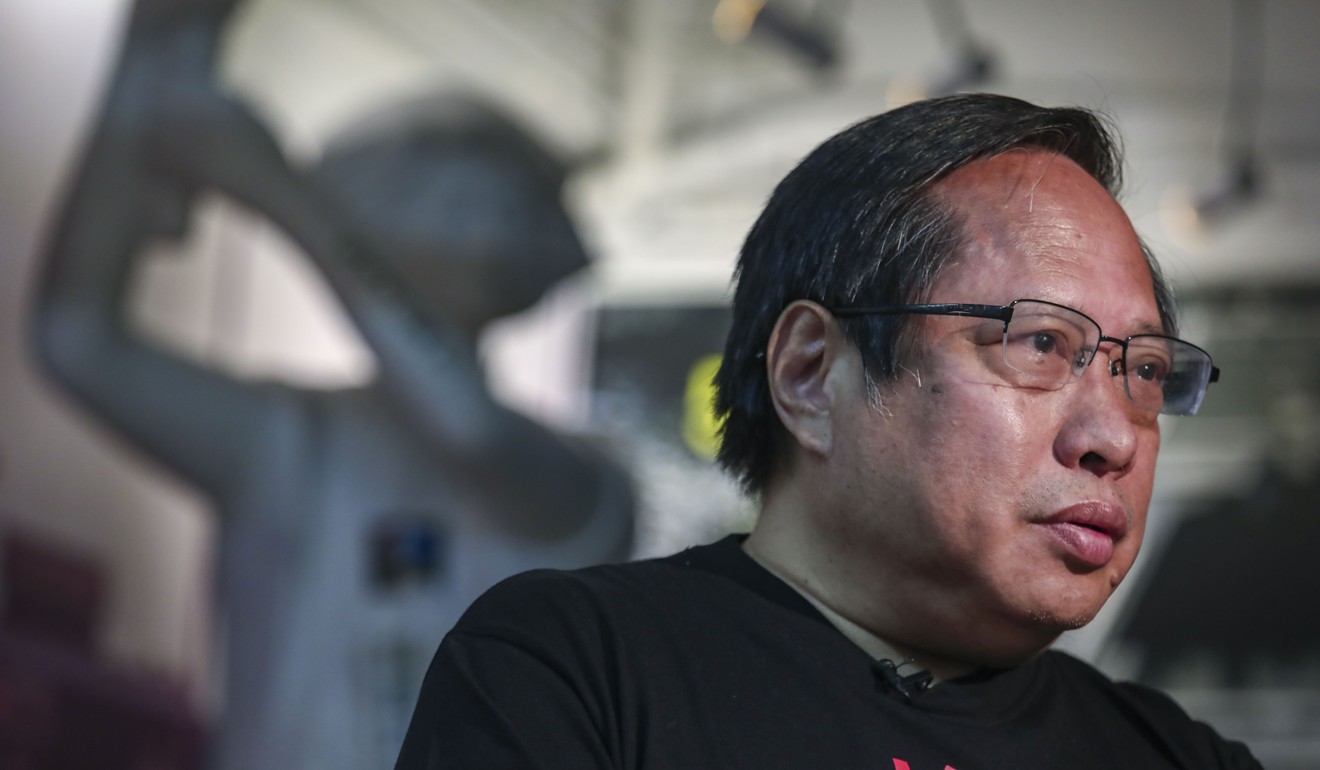
Ho, a lawyer, said Leung had previously come to his firm for help but had now lost some of his arrogance.
“He’s changed so much.”
During the trial, Leung offered an apology in court to the police officers he had assaulted.
The former lawmaker praised the activist’s sense of responsibility. Some people had urged him not to return to Hong Kong to face his fate, he noted. With his conviction, Leung now faces a maximum sentence of 10 years in jail.
“Yet he chose to come back,” Ho said.

